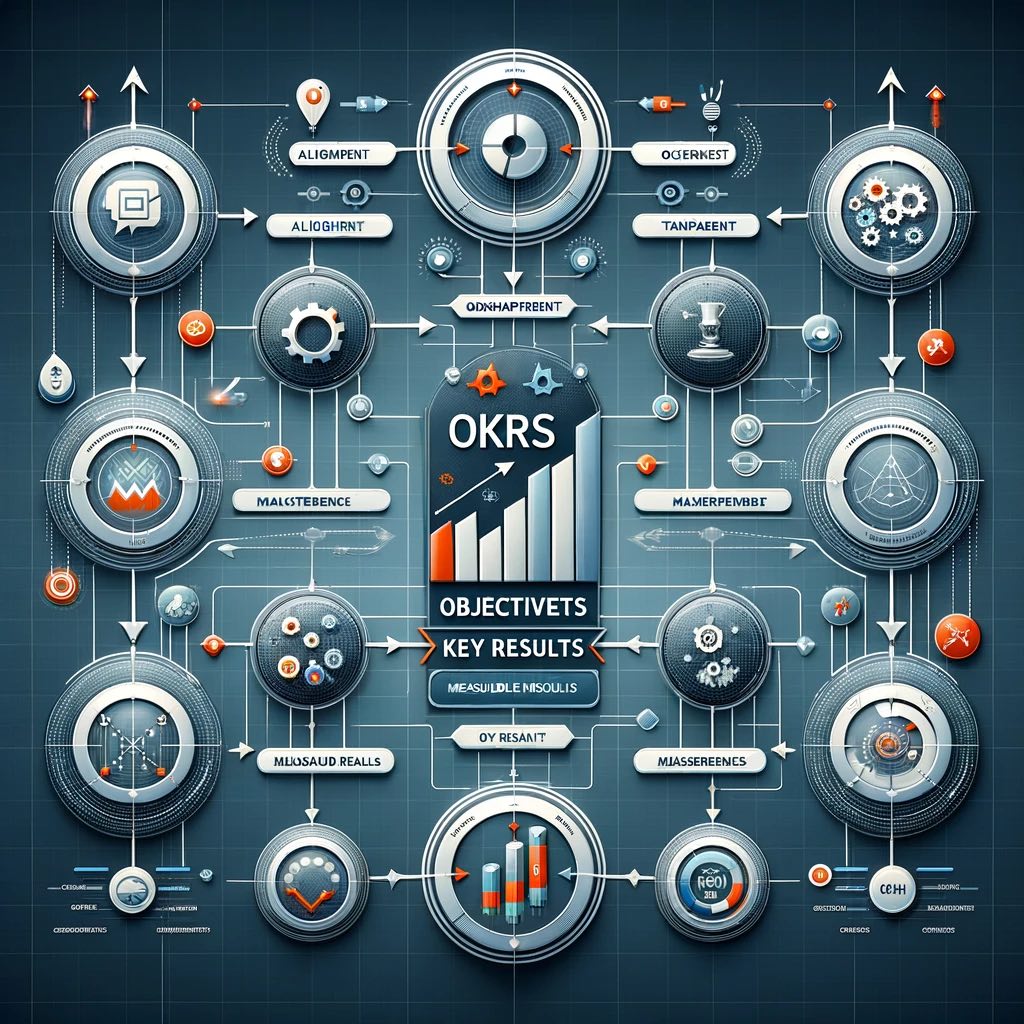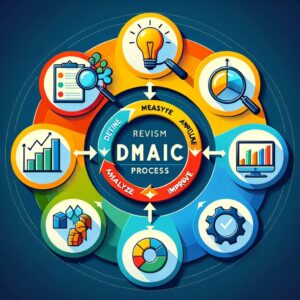OKRs (Objectives and Key Results)

Objectives and Key Results (OKRs) are a powerful goal-setting and management methodology widely used in strategic planning and organizational change. This tool helps businesses set, communicate, and monitor ambitious goals and results over a set period, usually a quarter or a year. The methodology is characterized by its focus on setting challenging, ambitious goals with measurable outcomes.
Overview of OKRs:
- Objectives: These are qualitative, inspirational, and action-oriented goals designed to drive motivation and challenge the organization. Objectives should be clear, concise, and understandable.
- Key Results: These are quantitative measures used to track the achievement of objectives. They should be specific, time-bound, and measurable. Key Results should be indicators of progress rather than tasks.
- Alignment and Transparency: One of the key strengths of OKRs is the alignment of goals across the organization. This ensures that everyone is working towards the same strategic objectives. The transparency of OKRs helps everyone understand the priorities and how their work contributes to the bigger picture.
- Regular Review and Adaptation: OKRs encourage regular check-ins to track progress and make necessary adjustments. This iterative process fosters agility and responsiveness to change.
- Aspirational and Realistic Balance: While OKRs should be ambitious, they also need to be realistically achievable to maintain motivation and engagement.
Application in Management Consulting:
- Strategic Alignment: OKRs are instrumental in ensuring that every level of the organization is aligned with the overall strategic direction.
- Performance Management: They provide a framework for evaluating performance in a structured and transparent manner.
- Organizational Change: OKRs can facilitate change management by clearly defining desired outcomes and tracking progress towards these goals.
Similar Tools and Methodologies:
- Balanced Scorecard: Similar to OKRs, the Balanced Scorecard is a strategic planning and management system used for aligning business activities to the vision and strategy of the organization, improving internal and external communications, and monitoring organization performance against strategic goals.
- SMART Goals: Specific, Measurable, Achievable, Relevant, and Time-bound goals are another framework for setting clear and achievable objectives. While less focused on ambitious, aspirational targets compared to OKRs, SMART goals provide a structured approach to goal setting.
- Hoshin Kanri (Policy Deployment): A strategic planning process that aligns an organization’s functions and activities with its strategic objectives. Like OKRs, it emphasizes alignment and execution but involves a more detailed roadmap for implementation.
- KPIs (Key Performance Indicators): These are specific metrics used to measure the effectiveness of various business activities. While KPIs are often used in conjunction with OKRs, they are more focused on measuring performance than setting goals.
OKRs represent a flexible and dynamic approach to goal setting and performance management, adaptable to a variety of organizational contexts and industries. Their focus on alignment, transparency, and measurable results makes them particularly valuable in fast-paced and rapidly evolving business environments.



